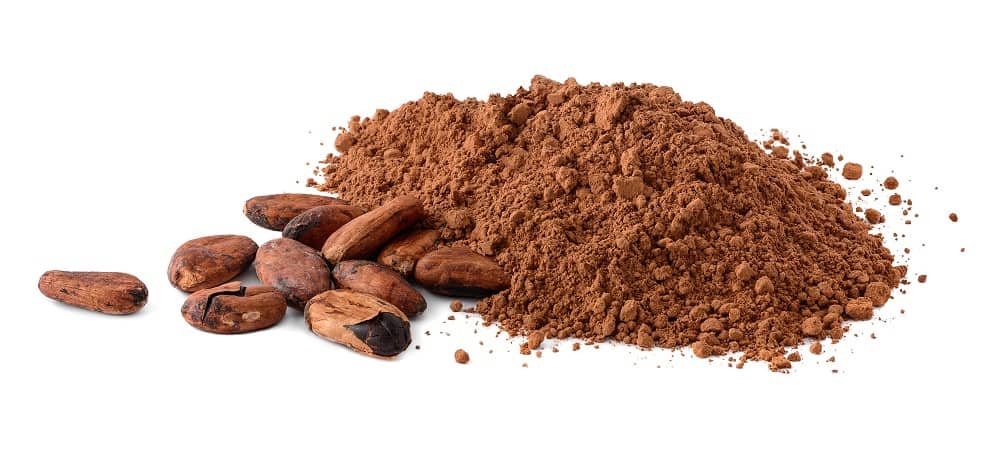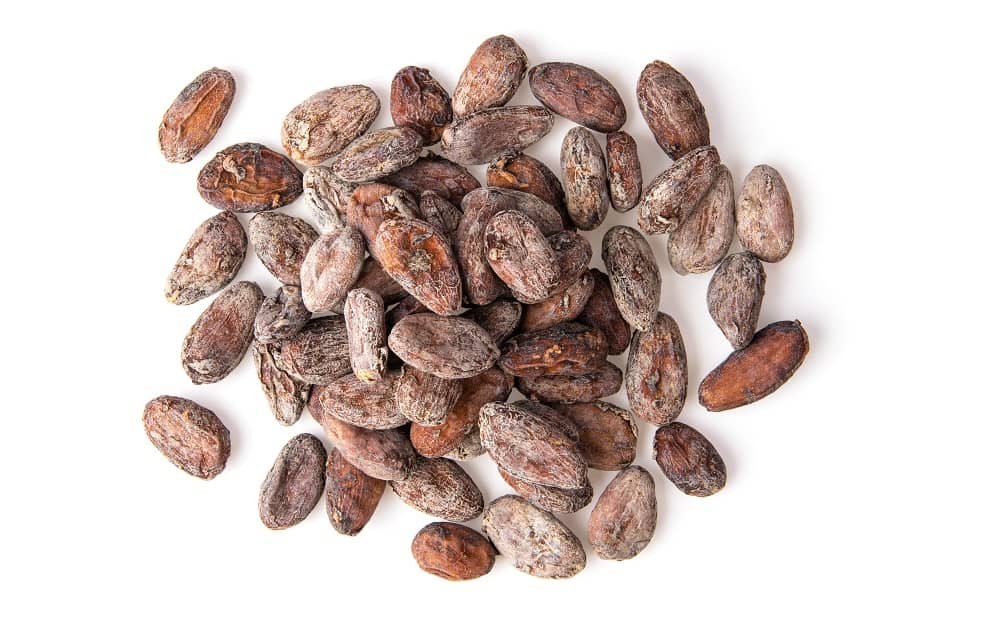Cocoa powder is a common and highly favorable ingredient often used in different recipes to give the resulting product a chocolate flavor. With a long history of consumption in South America, cacao was considered by the locals as “the food of the gods.” Today, 4.2 million tons of cocoa valued at $11.8 billion is produced per year with an estimated growth rate of 3%.
Obtained from a plant source, pure cocoa powder is a vegan food item. Harvested from the cacao plant, the fruit is rich in polyphenols that are being investigated for a number of health benefits.
However, it should be emphasized that while pure unsweetened cocoa powder is vegan, sweetened cocoa powder and instant hot chocolate powders may not be. Furthermore, ethical vegans might have trouble with the cocoa industry for it's history of child labor.
Table of Contents
Cocoa Powder

According to archaeological evidence, Maya traders were suggested to have consumed cocoa as early as 400 BC. The modern name of cocoa and chocolate are derived from their Aztec etymology, xocolatl.
Cocoa begins its journey from the cacao tree (Theobroma cacao). Originally native to South America, the tree is commercially grown for chocolate production across the tropics including West Africa and Southeast Asia(1).
A product from the cacao tree, cocoa powder is the powdered form of cocoa solids – the components left after most of the fat has been extracted away.
The process of making cocoa powder is relatively simple. After harvesting the cacao pods from the trees, they are broken to access the fleshy cacao beans inside. The fresh cacao beans are then sent for fermentation and subsequent drying. These processes are said to enhance the flavor.
The dried beans are then roasted for further flavor development before they are broken to separate the outer husk with the cacao nibs inside. The cacao nibs are then processed to remove the excess oils (cacao butter) and are then dried once more. After drying, the remaining substance is ground to a fine powder to create cocoa powder.
There is also an optional production process that some companies utilize called the Dutch process. This process exposes the cocoa powder to an alkalizing agent which will neutralize the natural acidity of cocoa. Cocoa that does not undergo the Dutch process is said to undergo the Broma process.
Cocoa vs Cacao

Many people mistakenly interchange ‘cocoa’ and ‘cacao,’ but the two have a distinct difference that's rooted from their production.
Cacao is used when referring to the raw ingredient – the cacao bean. Using industry jargon, once the cacao beans are roasted, they are then considered to be cocoa beans.
Is Cocoa Powder Vegan?
Pure cocoa powder is vegan as it is the product of cacao beans undergoing several processes such as fermentation, drying, and grinding.
It should be emphasized that while pure cocoa powder is vegan, sweetened cocoa powder might not be. Sweetened cocoa powder is simply cocoa powder with added sugar.
While sugar makes the mixture sweeter, sugar is considered to be a gray area for most vegans. Sugar industries, especially in the US, filter their sugar with animal bone char. Vegan methods for filtering sugar do exist, however product labels rarely make this distinction.
Cross-contamination is also a possibility, especially from large companies that produce a wide selection of products.
Another thing to take note of is that cocoa powder is not the same as the commercially available instant hot chocolate powder. The ingredient lists must be checked as these products often include other non-vegan ingredients such as dried milk.
These instant hot chocolate powders can also contain lecithin which is considered a gray area for vegans as it can be produced from either animal- or plant-based sources.
Cocoa and Child Labor
Originally, ethical veganism was focused on raising awareness for the abuse and cruel use of animals. However, the movement has since then expanded to include fighting for human rights as well. Hence, ethical vegans strive for fair trade and abstain from products that are produced through the exploitation of human lives such as forced labor, child labor, and unfair wages.
One aspect of the cocoa industry that ethical vegans might be against would be the documented cases of cacao plantations using child labor (2). Under pressure of different economic and cultural factors, these children are forced to swing machetes, carry heavy loads, and spray dangerous pesticides at the cacao plantations.
Even though big names in the chocolate industry officially announced their eradication of child labor, they cannot confidently verify that their supply farms are child-labor free since they cannot track the sources of all their supply farms.
Under pressure from the US congress back in 2001, big names in the industry such as Mars, Nestle, and Hershey signed a pledge to eradicate child labor from their West Africa cacao suppliers. The companies agreed to fulfill the pledge in four years’ time.
Although steps have been taken prevent the utilization of child labor, the circumstances of the situations have proved to make the project very difficult.
One way to determine whether the cocoa powder you are planning to purchase did not utilize child labor is to look for the Fairtrade certification on the label. Fairtrade International is an organization that addresses injustices in conventional trade(3).
Note: Ethical issues like the above also plague the tea industry.
References
1. https://www.sciencedirect.com/




